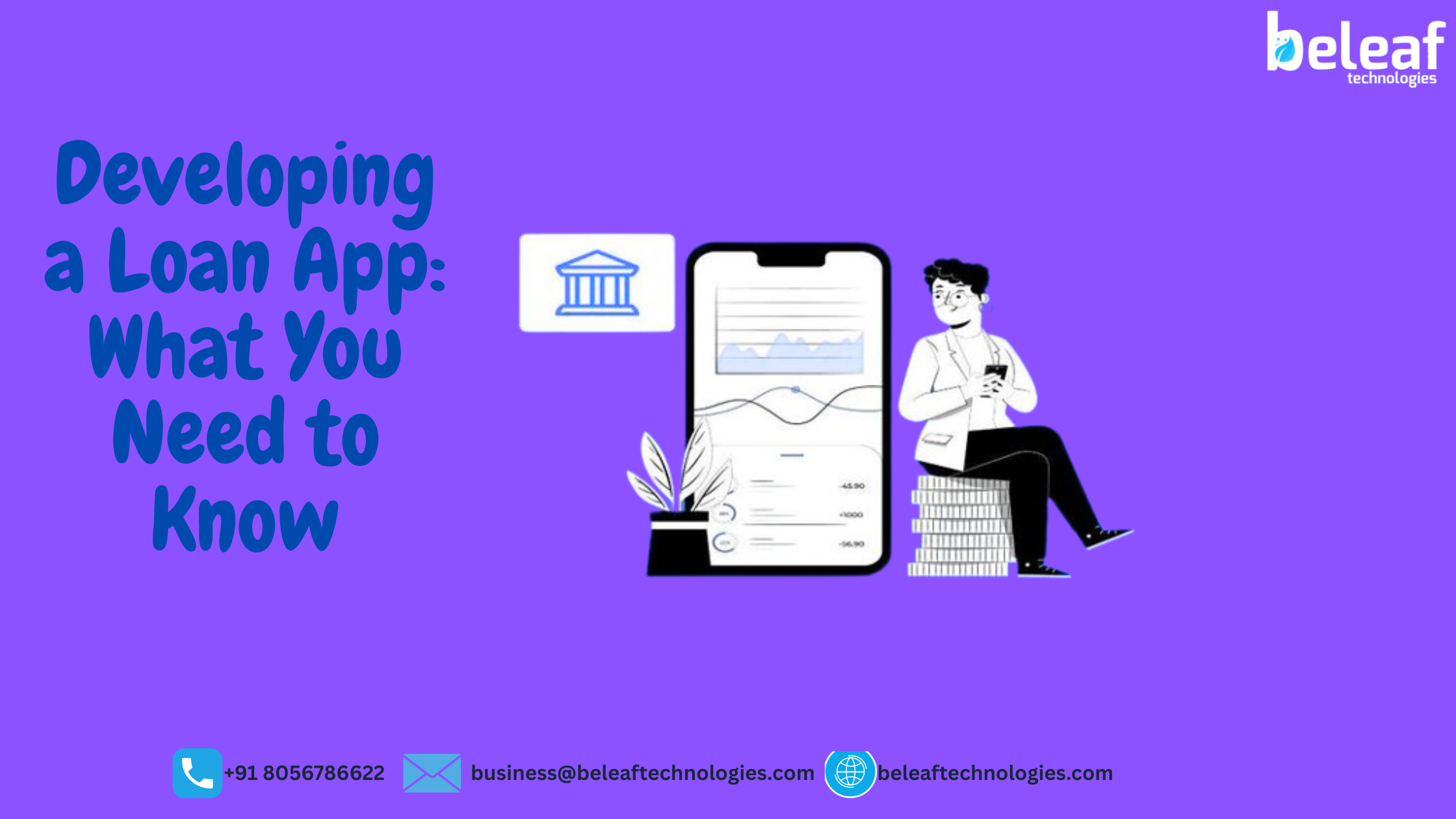Developing a Loan App: What You Need to Know

If you're thinking of building a loan app, it’s important to understand the key features, development steps, and challenges involved. Everything you need to know to get started will be covered in this tutorial.
1. Plan Your Loan App the Right Way
You must have a clear plan before you write any code. Start by identifying your audience: Are you targeting individuals seeking personal loans or small businesses in need of working capital?
Define the types of loans you’ll offer, repayment terms, and whether your app will connect borrowers with lenders (peer-to-peer) or act as a direct lender.
Then, map out the user journey from signing up and applying for a loan to tracking payments. A smooth, intuitive interface is critical for user trust and satisfaction. Also, think ahead and make sure your app is scalable as your user base grows.
2. Must-Have Features of a Loan Lending App
Your app’s success will depend on the features it offers. Here are the essentials:
-
User Registration & KYC: Simple sign-up with secure identity verification.
-
Loan Application: Easy-to-fill forms with document upload support.
-
Loan Calculator: Help users estimate EMIs and interest before applying.
-
Approval Process: Automated loan approval according to preset guidelines.
-
Repayment System: Track payments, set reminders, and show due dates.
-
Payment Gateway Integration: Allow secure loan disbursal and repayments.
-
Push Notifications: Send updates on loan status, due dates, or offers.
-
Customer Support: In-app chat or support center for user queries.
Optional but useful additions include credit score checking, referral programs, or investment options for lenders in peer-to-peer models.
3. The Development Process in Simple Steps
Here’s a simplified version of what the loan app development cycle looks like:
-
Research & Strategy: Analyze your competition, understand legal requirements, and finalize your app’s value proposition.
-
UI/UX Design: Create wireframes and design user-friendly interfaces that are mobile responsive and easy to navigate.
-
Technology Selection: Choose your tech stack popular choices include React Native or Flutter for the frontend, and Node.js, Python, or Java for the backend.
-
Development: Build your app's front and back end, integrate databases, and set up third-party tools (e.g., KYC, payment gateways).
-
Testing: Rigorously test for bugs, security loopholes, and app performance.
-
Launch & Market: Deploy the app to app stores and start your marketing campaigns to attract users.
4. Tools and Technologies You’ll Need
Here are some useful tools and integrations for building a functional and secure loan app:
-
Credit Scoring APIs (like Experian, CRIF): Evaluate user eligibility.
-
Payment Gateways (like Razorpay, Stripe, or PayPal): For fast and secure transactions.
-
Analytics Platforms (like Mixpanel or Firebase): To track user behavior.
-
Security Tools: To ensure data safety, use SSL, encryption, two-factor authentication, and PCI-DSS compliance..
-
Loan Management Systems: Automate loan issuance, interest calculation, and repayment scheduling.
5. Estimated Cost of Development
The cost of developing a loan app depends on features, platforms (iOS, Android, or both), and the experience level of your development team.
Here’s a rough estimate:
-
Basic MVP: $20,000 – $40,000
-
Mid-Level App: $40,000 – $70,000
-
Advanced App: $70,000 – $100,000+
Other costs to consider include licensing, third-party services (KYC, payment processing), ongoing maintenance, and cloud hosting.
6. Don’t Overlook Security & Compliance
Financial apps must follow strict legal and security standards. Make sure your app includes:
-
KYC (Know Your Customer) and AML (Anti-Money Laundering) protocol
-
Data encryption for all personal and financial user data
-
Secure login and access control
-
respect for both domestic and international laws, including PCI-DSS and GDPR
Work with legal advisors early on to ensure you meet all financial regulations in your operating regions.
7. Final Thoughts Before Launch
Before you go live, test everything thoroughly not just the features, but also user experience and security. Gather feedback from beta testers, adjust accordingly, and prepare a marketing plan to reach your audience.
Once launched, keep improving. Listen to user feedback, release regular updates, and stay informed on trends in digital lending.
Conclusion
Building a loan lending app is a smart move in today’s digital-first world, but it requires proper planning, secure technology, and user-centric design. By focusing on the features users need and following a structured development process, you can create a loan app that not only works well but earns long-term trust.
Whether you're a startup, fintech entrepreneur, or financial institution, now’s the time to tap into the growing digital lending market one line of code at a time.
- Art
- Causes
- Crafts
- Dance
- Drinks
- Film
- Fitness
- Food
- Jogos
- Gardening
- Health
- Início
- Literature
- Music
- Networking
- Outro
- Party
- Religion
- Shopping
- Sports
- Theater
- Wellness


